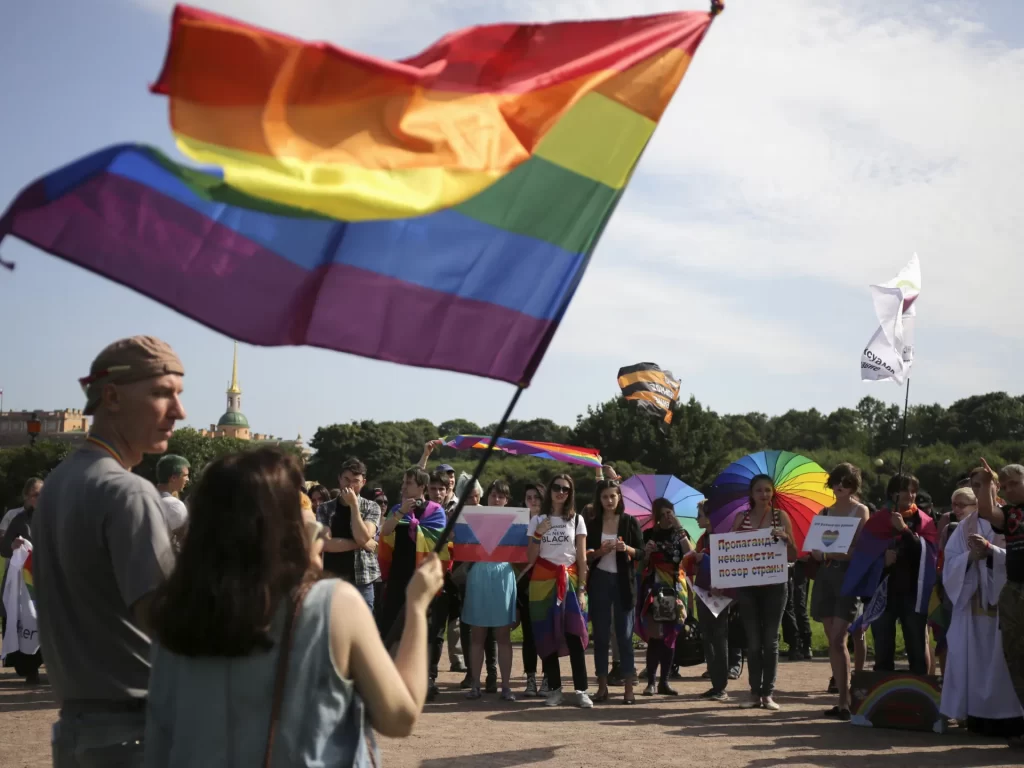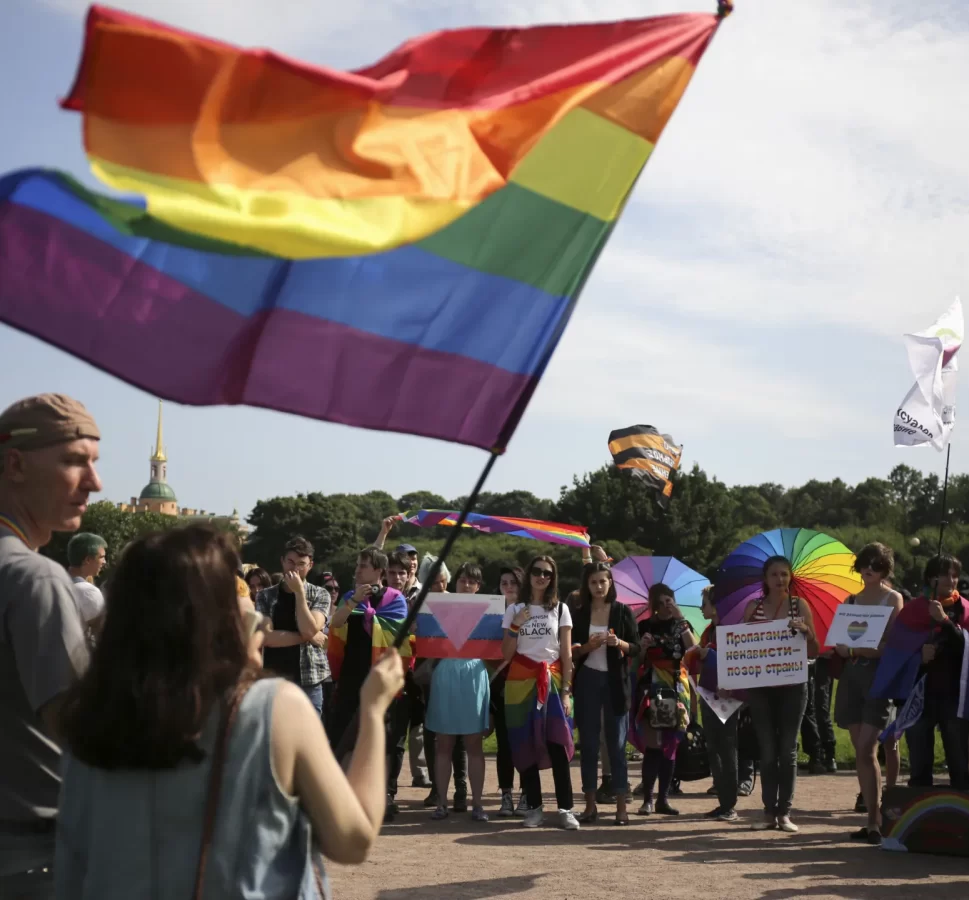
The suspects will remain in custody until May 18 and face as long as 10 years in prison if found guilty.
A Russian court has ordered the arrest of a bar administrator and its art director, accusing them of organising an “extremist organisation” under new legislation criminalising the LGBTQ community.
It is the first criminal case launched since Russia banned the so-called “international LGBT movement” in November, amid an accelerating crackdown on LGBTQ people.
“The court chose a preventive measure for the art director and administrator of the ‘Pose’ bar,” the Orenburg tribunal said on Wednesday. The two will remain in custody until May 18 and face up to 10 years in prison, according to the court in southwestern Russia.
The tribunal earlier accused them of “promoting non-traditional sexual relations among the visitors of the bar”.
Police raided the bar earlier this month, and videos of the humiliating detentions of some of the club visitors circulated online.
“The accused, people of non-traditional sexual orientation, acted in premeditation with a group of people … who also support the views and activities of the international public association LGBT,” the court said on Telegram.
According to the Moscow Times, the independent news website Mediazona identified the manager as Diana Kamilyanova and the art director as Alexander Klimov.
‘LGBT as an extremist movement’
Russia has released publicly only a vague description of what it calls the “international LGBT movement”, which critics have said allows the prosecution of anyone protecting LGBTQ rights or simply identifying with the community.
The director of the League of the Safe Internet and figurehead of the ultra-traditional faction pushing for repressive laws, Ekaterina Mizulina, hailed the criminal proceedings.
“This is the first criminal case in Russia after the decision of the Supreme Court to recognise LGBT as an extremist movement,” Mizulina said.
Mizulina said that “local activists” told the police about the club, amid a climate of denunciations of dissident voices.
“What LGBTQ persons and human rights activists have feared since the end of last year has finally come to pass,” Amnesty International said on Tuesday.
Lawmakers in 2013 banned people from promoting “non-traditional” relationships to children and since then have stepped up pressure on the remaining liberal corners of Russian society.
The Kremlin has further ramped up conservative rhetoric since launching its full-scale invasion of Ukraine, casting the conflict as a battle against the West and its liberal values.






